Musicarta Pentatonic Workbook
Pentatonic Scale Riff
Pentatonic Diaries 15-12-15
This riff uses familiar scale-tone
pattern material with rhythmic build-up as an example of how to make your practicing fun and creative.
Practice fragment 1

The contour pattern is down-up-up (rising) and down-down-up (falling) - but a three-note pattern in a four-note meter.
The pattern is all white keys, so fingering is not a big problem. ‘Creep’ your hand sideways by using thumb for the lowest note of the groups (rising) and RH4 for the top note, falling.
The rhythm is triplet feel/swing quavers, but continuity is your first priority.
Practice fragment 2
Next, add a simple minim beat in the left, just for practice keeping going with two hands playing.

Practice fragment 3
Break this practice task into two parts.
First make sure you can play the left hand – two pentatonic tones above and two below the tonic.
Then add the right hand. This screen shot and the TLR mark-up between the staves will help you work out what hand/note goes with what.


Practice efficiently Learn the two syncopated patterns one at a time over your continuous left hand. Watch these efficient practice suggestions.
First half
Second half and combined
Contour and stress pattern
The contour pattern is down-up-up (rising) and down-down-up (falling) – check in the music. This three-note grouping is across the beat, so the sixteen quavers (over two bars) are grouped:
1 2 3 1 2 3 1 2 3 1 2 3 1 2 1 2 | 1 2 3 1 2 3 1 2 3 1 2 3 1 2 1 2
Listen to the audio for an exaggerated performance.

Practice fragment 4
Here, the left hand follows the 3 + 3 + 3 +
3 + 2 + 2 right hand grouping up the pentatonic minor scale. The left hand
plays the same note as the right hand most of the time.

Practice fragment 5
Now for the real thing. The right hand plays its whole run of notes over the left hand two-up, two down ‘ground’ (repeating bass part).

Practice fragment 6
Learn the ending early on, so you can always finish your study sessions impressively.
Learn the ending hands in unison first, with both playing in the right hand rhythm before trying the off-beat left hand. (The MidiPiano performance/MIDI file does this.)

Practice fragment 7
As a stepping stone to the ‘continuous’ right hand performance, or as a springboard for improvisation, the right hand can play just parts of the continuous run: down-up-up fragments (rising) and down-up-down fragments (falling) over the bass pattern.
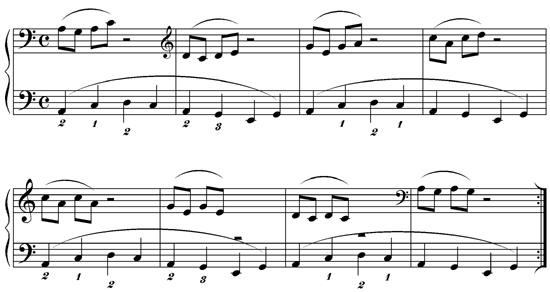
Practice fragment 8
A quaver beats 1 and 4 rhythm in the left hand gives any riff a bit of a lift. An improvisation option.

Improvise!
If you know your pentatonic minor scale tones can master these movement patterns, these nothing to stop you launching into free two-handed improvisation – no matter how faltering.
By its nature, the pentatonic scale harmonises well with itself, so it’s ideal for low-risk improvisation attempts. (And the nice thing about sound is your mistakes disappear straight away!)
|
OUT NOW! |
THE MUSICARTA BEAT & RHYTHM WORKBOOK At last! An effective approach to keyboard rhythm & syncopation skills. Learn more! |
ONLY $24.95! |
|
THE MUSICARTA PENTATONICS WORKBOOK video course Home/Index pages The Pentatonic Scales
Practice Patterns
Melody Work and
Playing by Ear
Pentatonic Riffs
and Diaries - Minor Pentatonic Major Pentatonic
Chromatic Minor
Chromatic Major
Pre-video Pages
Pentatonics videos
Archive Pages
|
The MusicartaA methodical approach to keyboard syncopation for
|
PUBLICATIONS
exciting keyboard
creativity courses
CHORDS 101
WORKBOOK

~HANON~
video course

Musicarta
Patreon
PENTATONICS
WORKBOOK
video course

Creative Keyboard
video course

BEAT AND RHYTHM
WORKBOOK
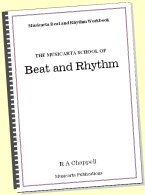
- Volume 1 -

12-BAR PIANO
STYLES WORKBOOK
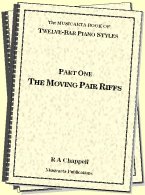
MUSICARTA MODES
WORKBOOK
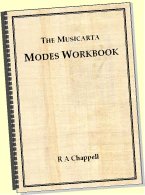
PIANO STYLE
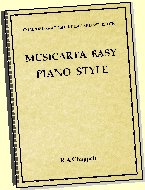
CANON PROJECT
video course
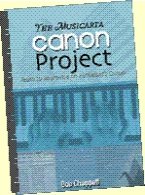
VARIATIONS
video course
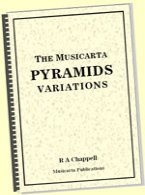
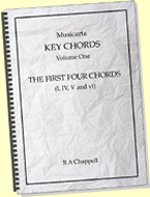
- Piano Solo -
video course

- Piano Solo -


YouTube playlists





 THE LOGO
THE LOGO
